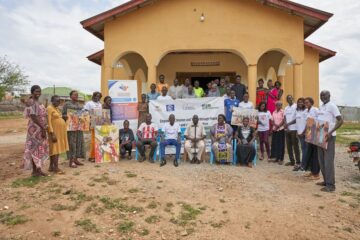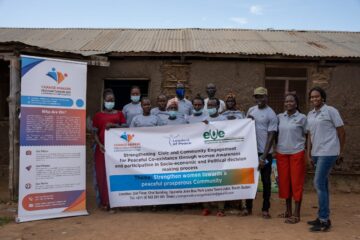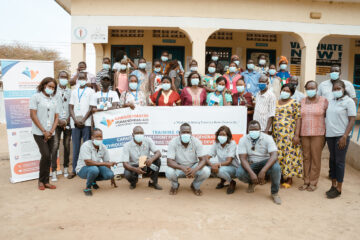Unlocking African Women Potential

Blog Source: World Economic Forum
• COVID-19 exposed persistent inequalities for women in the African workforce.
• These inequalities are underpinned by a gendered division of labour that is hard to shift.
• Investing in women’s human capital will allow them to break free of traditional roles.
COVID-19 has shown the urgent need to reimagine our world – and more critically, to reimagine it for women. It has exposed the vulnerabilities of livelihoods and persistent inequalities affecting women in the context of the African workforce.
In Africa, women are disproportionately employed in the informal economy in small-scale food processing, subsistence farming and petty food trading, suffering poor working conditions and living standards as a result. The lack of power willed by women in these sectors – because they are functioning primarily in gendered roles, and still grappling with barriers like unfair land laws and poor access in the food supply chain – puts them at a considerable disadvantage.
These vulnerabilities call for urgent examination of investment in women’s human capital, in order to realize their potential in the workforce and economy in Africa. The human development approach focuses on advancing human well-being by enriching people, rather than the economy. The focus on creation of opportunities for people to live lives they value, and provision of an enabling environment for people to make choices, will be what allows African women to realize their full potential in a post-COVID-19 world.
Breaking down gender segregation
Gendered patterns of division of labour have already reduced the scope of women’s economic participation across Africa. Despite that the educational attainment gender gap is nearly closed, this has not translated into new opportunities in the job market for African women. They are mostly placed in service-sector roles like hairdressing, fashion retail and food catering.
The pandemic further exposed the underpinning gender-socialization constructs, starting with the fact of women’s heavier burden of caregiving during this difficult time. Shouldering more domestic work also exacerbates their poor well-being and working conditions. Job losses hit African women disproportionately hard during the crisis, with widespread technology adoption in the customer care and administrative roles they predominantly occupy. The impact has been even harder on the ageing female population, who lack the relevant skills to reinvent their careers.
Read more on World Economic Forum


